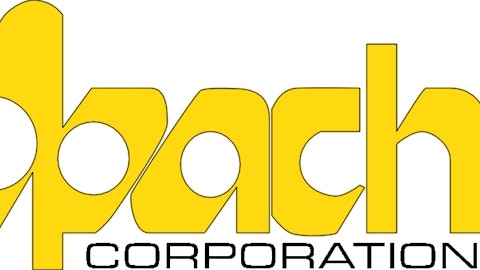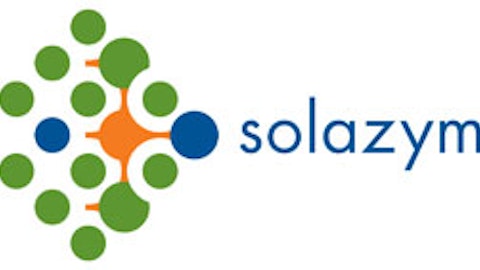Murphy Oil Corporation (NYSE:MUR), an integrated oil and gas company, had Board member Claiborne Deming (who was the company’s CEO through 2008) directly purchase 80,000 shares of stock in mid-February at prices of up to about $60.50 per share. Insider purchases tend to be bullish signs (read more about research on insider trading), as the insiders are choosing to buy more stock rather than diversify their investments as would normally be rational. Recently, we have been focusing much of our attention on tracking a new round of 13F filings from hedge funds and other notable investors as part of our work developing investment strategies based on hedge fund activity. On average, the most popular small cap stocks among hedge funds outperform the S&P 500 by 18 percentage points per year (learn more about our small cap strategy). However, the size of this insider purchase makes it worth investigating in our view.
Last quarter, Murphy Oil Corporation experienced a 9% increase in revenue compared to the fourth quarter of 2011. While the company’s expenses were up, pretax income for the quarter grew to over $260 million from a little less than $90 million. This was an improvement compared to earlier in the year, when sales and pretax income had been about flat compared to a year ago. In total, Murphy Oil posted just under $5 per share in earnings for 2012, generating a trailing P/E multiple of 12. We’d note that- as we’ll see when we look at the company’s peers- that while that valuation is low in absolute terms it is not particularly attractive for an oil and gas company in the current environment. Analyst expectations for 2013 imply a current-year P/E of 12 as well, and then a pickup in earnings in the following years (for example, based on consensus for 2014 the forward earnings multiple falls to 10).
Billionaire Dan Loeb’s Third Point initiated a position of 4.9 million shares in Murphy Oil Corporation during the third quarter of 2012 (see Loeb’s newest stock picks). Orbis Investment Management, managed by William Gray, has been another major shareholder in the company and that fund reported owning 4.1 million shares at the end of September (check out more stocks Orbis owned). Cliff Asness’s AQR Capital Management had been buying shares during Q3 as well (find Cliff Asness’s favorite stocks).
How does Murphy Oil compare to its peers?
Integrated oil and gas companies are generally much larger than Murphy Oil. We’d include BP plc (NYSE:BP), Exxon Mobil Corporation (NYSE:XOM), Chevron Corporation (NYSE:CVX), and Hess Corp. (NYSE:HES) – the first three of which all have market caps over $100 billion- as peers. Murphy turns out to be in the middle of the range formed by these companies in terms of forward P/Es, with Hess and Exxon Mobil sharing a forward earnings multiple of 11 while Chevron and BP trade at small discounts. Exxon Mobil reported a moderate increase in its net income in the fourth quarter of 2012 versus a year earlier. Chevron and Hess both saw a slight fall in revenue; while Chevron’s earnings were up in percentage terms we think that its gain is more likely to have been one-time or short-lived rather than a sign of continually strong growth. BP is still overcoming problems related to the Deepwater Horizon disaster, but analysts are expecting earnings to recover in the long term and the dividend yield is about 5%.
Sales at Murphy have been doing well, and at least so far the company has also been able to improve its margins. The valuation is cheap, but larger peers with more market leadership are as well and in some cases have even lower multiples. We think that investors should consider BP and Exxon Mobil out of this peer group, and possibly Murphy depending on how much weight they believe is appropriate for an insider buy.
Disclosure: I own no shares of any stocks mentioned in this article.






